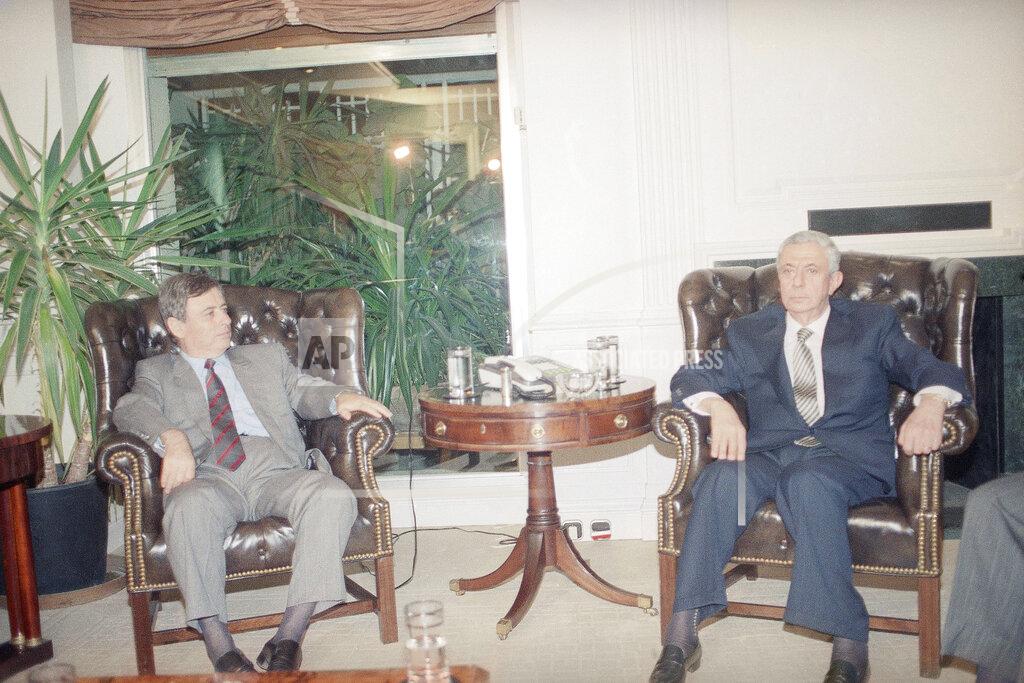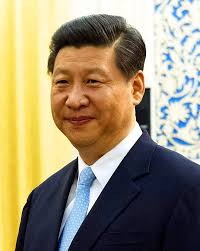Arrival of a high-level Syrian official delegation, including Syrian Vice President Abdul-Halim Khaddam and Chief of Staff of the Syrian Army General Hikmat Al-Shihabi. They conducted extensive negotiations with the Lebanese government, resulting in the termination of the normal relations between Lebanon and Syria. The agreed-upon formula is expected to be ratified in the first cabinet session and later in the parliament, with both Lebanese and Syrian presidents signing it before the end of the current month. This marks a historic treaty, the first of its kind in the fifty years since the two countries had unstable relations.
The high-level Lebanese-Syrian talks, held yesterday at the presidential palace between President Elias El-Hrawi, Speaker of the Parliament Hussein El-Husseini, Prime Minister Omar Karami on the Lebanese side, and Syrian Vice President Abdul-Halim Khaddam, Chief of Staff of the Syrian Army General Hikmat Al-Shihabi, and the head of reconnaissance in the Syrian forces operating in Lebanon on the Syrian side, represented significant, if not final, steps in the exceptional relations between the two countries. They discussed the appointment of deputies, the implementation of the remaining provisions of the Taif Agreement, and an agreement on the ongoing regional movements and how to address their implications on both nations.
The sudden visit of the Syrian delegation to Beirut coincided with political indicators suggesting the possibility of holding a Lebanese-Syrian summit soon to discuss the issues on both the Lebanese and regional fronts. Political and observational sources considered that the talks that took place have eliminated the possibility of convening the mentioned summit in the foreseeable future. This is pending the completion of the discussed files, especially regarding the application of the Taif Agreement concerning relations, appointments, decentralization, and the translation of the agreed-upon points during the upcoming phase.
These talks coincided with the accomplishment of two significant steps: the issue of deploying the army to the south, where a force from the Sixth Brigade was sent yesterday to the region in preparation for deployment in the areas of the international forces’ operations. This is in anticipation of the implementation of Resolution 425. Additionally, progress was achieved in the negotiations led by Mr. Mohsen Ibrahim in Tunisia with the Palestine Liberation Organization, reaching an agreement to hold a direct meeting in Cairo on the sidelines of the Arab Foreign Ministers Conference between the Lebanese and Palestinian sides.
The Lebanese-Syrian talks continued for four hours, concluding with Syrian Vice President Mr. Khaddam addressing journalists. He confirmed the existence of agreement in analysis, vision, and conclusion regarding the discussions that covered ongoing regional movements, our shared interests in these movements, and the steps taken by the Lebanese government in its program to implement the national pact, including the program itself.
Mr. Khaddam called on all Arabs to support the Lebanese state, urging them to engage in all contacts and efforts to secure communications and efforts that would aid in the implementation of Resolution 425 and the achievement of Israeli withdrawal. He emphasized that this is a crucial step in enhancing the process of establishing state authority. Mr. Khaddam affirmed that Syria is in communication to explore means to implement this resolution. Responding to a question about special relations and whether they were discussed in the meeting, he said that the discussions focused on the existing relations between the two countries, leading to Lebanon being informed about the communications and movements. An agreement was reached on the visions that both countries can work on together, and it is natural to say that they discussed some concepts about how to implement the provisions related to Lebanese-Syrian relations in the National Accord Charter.
Regarding the issue of foreign hostages, Mr. Khaddam expressed the wish for the release of the detained Lebanese individuals held by Israeli authorities, describing the conditions related to this matter as positive. He considered the Soviet Foreign Minister’s visit to Lebanon as important, seeing it as a new expression of international support for the Lebanese state and the national reconciliation process.
President Omar Karami revealed after the meeting that there was a discussion about some matters related to special relations. Many points were clarified, and an agreement was reached on everything. In response to the recent stance of Bkirki on this matter, Karami said, “Everyone has their opinion; we are in a democratic country. But in the end, we came as a government to implement the Taif Agreement… which should not allow firing any bullets so as not to disrupt the entire process… because the result is that we came to implement all the Taif Agreement, and this issue should not derail any part of it. Since Lebanon has an interest in it more than Syria.” According to information from Al-Diyar, discussions between the Syrian and Lebanese delegations, especially the three presidents, mainly focused on the subject of special relations. It was presented item by item according to the draft prepared by the ministerial committee. Vice President Khaddam explained Syria’s position in detail on each point. Syrian observations will be presented in the meeting of the Special Relations Committee scheduled for 5 PM on Thursday at the Government Palace.
A parliamentary source conveyed from the meeting that Syrian Vice President Mr. Khaddam inquired about Bkirki’s recent position on the matter of special relations. The heads of state reassured the Syrian delegation that the implementation of the Taif Accord is progressing without obstacles. Mr. Khaddam expressed his belief that the current atmosphere is very conducive to continuing steadily towards achieving the complete provisions of the Taif Agreement.
The discussions also touched on the topic of parliamentary appointments in a general sense without delving into specific names. The Syrian delegation expressed a desire for this step to take the necessary time, as required by the routine process of submitting nomination requests, gathering opinions, and making decisions in the Cabinet to issue these appointments. There seems to be a quasi-perception that this step may not be completed before mid-June, carried out calmly after communications and consultations fulfill their content. The parliamentary source mentioned that the appointments may coincide with progress on the administrative decentralization and Lebanese-Syrian relations files, representing all prominent political and social orientations in light of the ongoing changes in the new parliament.
It was learned from the meeting that the President’s viewpoint was adopted, favoring the approval of special relations in the current parliament, i.e., before the appointment of new deputies. The President’s opinion in this regard is the necessity of separating between the two issues, not interpreting the appointment of deputies as being in Syria’s interest, as gaining parliamentary consensus is more achievable in the new parliament than in the current one. Accordingly, President Karami is expected to convey the Syrian observations on relations to the ministerial committee tomorrow, and the draft will be amended and approved in the upcoming Cabinet sessions under the title of the Treaty of Special Relations between Lebanon and Syria. The project will then be referred to the parliament for study and approval, a process expected to take place by the end of this month at the latest. The treaty is described by informed ministerial sources as more than coordination and less than integration, addressing all political, security, economic, and military fields.
The meeting also discussed the issue of absorbing militia elements into the state, in principle. Some ideas were exchanged without delving into details. The talks between the Syrian delegation and the three presidents began at 12:15 PM yesterday, including a working lunch at 3:15 PM, concluding at 4:10 PM.
Preparations for this visit were made by Lebanese officials, especially during the recent visits of ministers Daloul, Al-Mar, and Bouez to Damascus. In the expected communications, it is learned that the Syrian capital will witness intensive visits by Lebanese officials in the coming days. Speaker Nabih Berri is expected to visit Damascus early next week to consult with Syrian officials on various issues, including the parliamentary appointments. Minister Marwan Hamadeh visited Damascus yesterday, meeting with Mr. Abdul-Halim Khaddam, and Minister Mohsen Daloul is also scheduled to visit Damascus today.



